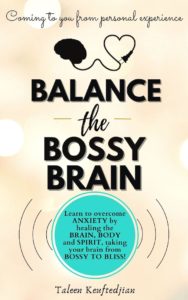How to Find True Happiness
It is easy to get caught up in the hustle and bustle of everyday life, and humans always feel like nothing is ever enough. We seek more money, more material things, more adventures, more lust, and want more and more and more. It is a constant perpetual chase to the finish line, but we keep going in circles like a hamster on a wheel. Sometimes it takes hitting rock bottom to wake up. We must realize that happiness should come from within, not external sources. You cannot rely on anyone else or any material objects to bring you happiness. Everything comes with an expiration date, and if your happiness is based on something that has expired, YOU’RE SCREWED! Happiness that comes from within is everlasting. Rather than looking at rock bottom as an obstacle, see it as an opportunity to reflect, learn, and grow. It is during this time that your mind is open and willing to try anything to get better. This is when people are starving for a change, pushing them to seek the guidance they desperately need.

How to be More Present
Think of Eckhart Tolle’s quote, “this too will pass,” meaning that any situation you are in (good or bad) is never permanent. Happiness, sadness, joy, fear, anger; will all eventually subside. This quote can help you when you are experiencing a tough time in life. It can also serve as a wake-up call when you find that you are attaching your happiness to an external factor. Instead, you should find peace and contentment in the present moment. This could be doing things like cooking, working, walking, driving, or simply just “being”. There is a profound power in stillness that brings peace, and with peace comes happiness. If you find yourself constantly smiling and humming throughout the day, then you are most likely genuinely enjoying every moment. Try to spend some time in nature every day and feel grateful for being able to experience its true beauty. If you ever need to find balance, let nature heal you by bringing you back to your roots. It is the simplest things in life that genuinely bring you happiness.

Living in the Moment
“Some people feel the rain. Others just get wet.” – Bob Marley
It’s important to live in the present moment to feel at peace. People who carry around old emotional baggage are prisoners of their past. If you are living in the past, you are depressed. Depression fuels negativity and anxiety, so we need to identify, process, and heal our emotional past to live in the present moment. Spirituality can help us find ourselves and awaken us to inner happiness. This can only be achieved by learning to live in the present moment. Simply being mindful of our thoughts and actions can re-train our brain to live in the moment.
To the Point - True Happiness and How to be More Present
- Do not rely on external sources to bring you happiness. Everything comes with an expiration date, and if your happiness is based on something that has expired, YOU’RE SCREWED! Happiness that comes from within is everlasting.
- Think of Eckhart Tolle’s quote, “this too will pass,” meaning that any situation you are in (good or bad) is never permanent. Happiness, sadness, joy, fear, anger, they will all eventually subside. Instead, find peace and contentment in the present moment.
- Immersing yourself in nature is a great way to bring you to the present moment.
- Stagnant emotional trauma makes you a prisoner of your past. Living in the past fuels negativity, anxiety, and depression, while living in the present brings you peace, and with peace comes happiness.
- Acknowledge, forgive, and release old emotional baggage to free yourself of perpetual negativity.
What is Mindfulness?
Mindfulness is the practice of being in the present moment. Practicing mindfulness can increase self-awareness, allowing you to tune into your thoughts, emotions, and body sensations.
How to Practice Mindfulness
#1 Be Aware of Your Thoughts
Being aware of your thoughts brings you to the present moment. Are your thoughts positive or negative? Are you thinking about the past, future, or present? If you find yourself thinking negatively often or find yourself concerned with the future, then take the time to acknowledge these thoughts when they come in. Simply acknowledging when you have a negative thought can bring you back to the present moment. Eventually, the more you catch yourself when thinking negatively, the less intrusive those thoughts will become. You can essentially rewire your brain to think more positively by simply acknowledging negative thoughts when they come in. The same goes for future thinking. The more you acknowledge when you have thoughts about the future, the more it will bring you back to the present moment. This is not to say that thinking about the future is a bad thing, but there is a time and place for future thinking. Most of your time should be spent experiencing the present moment. Stop running on autopilot and actively process what is going on around you. You can set aside time to think about future goals, opportunities, or a trip you are excited about. However, do not dismiss the present moment by constantly thinking about these events.
#2 Meditation for Mindfulness
Another approach to bring yourself into the present moment is by meditating. Focus on your breath moving around within your body. By doing this, you can shift your attention to your body rather than your thoughts. Try to get in tune with your senses by deep breathing. Your senses are heightened when you’re stressed out or anxious, so try to focus on what’s going on around you rather than the thoughts in your head. Observe your surroundings, smell the air, physically touch things that you can see.
How Mindfulness Meditation Works
“The day you stop racing is the day you win the race.” – Bob Marley
Meditation stimulates the pituitary gland which releases oxytocin, dopamine, serotonin, and endorphins. These are all the happy chemicals we need to help keep our brains in check. You can experience numerous benefits by practicing mindfulness meditation for 10 minutes per day. Some benefits include stress reduction, anxiety reduction, lowered blood pressure, improved focus, sleep, learning, memory, and much more.
All mindfulness meditation requires is that you focus on your breathing and relax your body. If thoughts come into your mind, release them, and redirect your focus back to your breathing. Eventually, you will be able to rewire your brain to limit intrusive thoughts, improve memory, concentration, and focus. A clearer mind gives you a better chance to get in control of your thoughts. Studies show that 10 minutes of mindfulness meditation per day for eight weeks can change the shape of your brain.
Many of us are distracted by intrusive thoughts, multi-tasking, worrying about the future, or dwelling about the past. These are all things that fuel negativity. Mindfulness meditation can help improve focus so that you can focus on one thing at a time. It can also improve sleep by helping you focus on the present moment. I get that sometimes it is hard to meditate when you are stressed out or anxious. Your mind and heart might be racing while you are thinking of multiple things at once. Take a few deep breaths and try your best to calm down. Any of the following techniques should help you gain more control. Learn more about mindfulness meditation.
What to do When You Worry Too Much and How to Live in the Present Moment
#1 Take it One Step at a Time
Stop trying to tackle multiple things at once. Try to focus on one thing at a time and start with a simple task that you can resolve easily. It would be great if you can make a list of everything you are worried about. Try to justify whether your worries are legit or not and how you can resolve them. This should be a time when you evaluate how rational your thoughts currently are. Is it necessary for you to be having these thoughts? Is there an immediate threat associated with these thoughts? If so, then let yourself tackle them one at a time. If not, then let the thoughts go or set them aside to deal with at some point in the future.
#2 Spend Time in Nature
If possible, take yourself outside or into nature. Take a walk or go for a run. Try to re-direct your attention to the beauty of the world around you. Focus on the sky, the clouds, the trees, the flowers, the birds, the stars, or the moon. Find peace and safety in nature. Remember that the universe is a loving place and is very supportive of you.
#3 Distract Yourself
If you cannot distract yourself with deep breathing, try distracting yourself by tackling a task around the house, such as cooking, cleaning, gardening, or fixing something.
#4 Focus on Your Breathing
Find a comfortable, quiet, and safe place to lay down. Close your eyes and focus on your breath to help you relax. This should help clear your thoughts and calm you down.
To the Point - Mindfulness
- Practicing mindfulness can increase self-awareness, allowing you to tune into your thoughts, emotions, and body sensations.
- Acknowledgment of thoughts is a strategy to help bring yourself into the present moment. Eventually, the more you catch yourself when thinking negatively or future thinking, the less intrusive those thoughts will become.
- Stop running on autopilot and actively process what’s going on around you.
- Another approach to bring yourself into the present moment is by focusing on your breath moving throughout your body. This can bring your attention to your thoughts, emotions, and sensations rather than the past or future.
- Meditation helps release dopamine, serotonin, and endorphins. These are all the happy chemicals we need to help keep our brains in check.
- You can experience numerous benefits by practicing mindfulness meditation for 10 minutes per day.
A relatable guide to overcoming anxiety by finding the root cause, and bringing the brain, body, and spirit back into balance. Coming to you from personal experience!
Learn more about Habitat for Wellness


